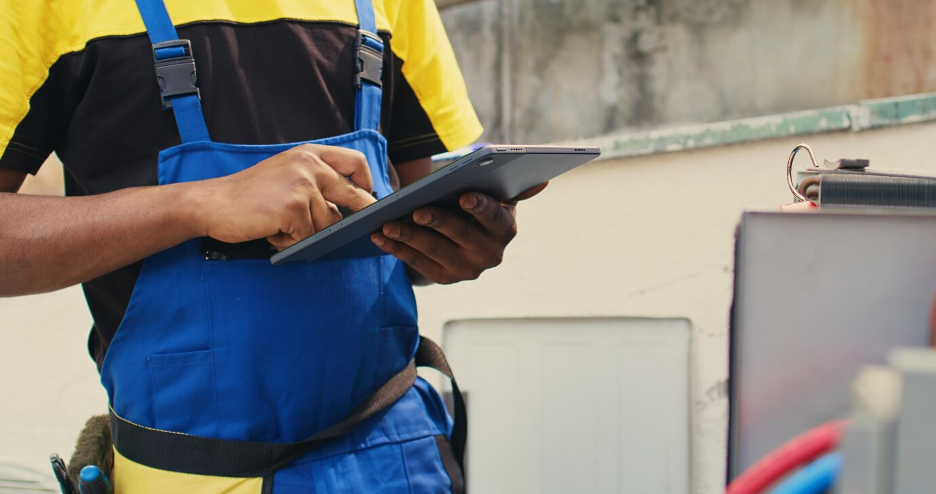HVAC Carbon Monoxide: The Ultimate Home Safety Guide
Home » HVAC Blog Articles » HVAC Carbon Monoxide: The Ultimate Home Safety Guide

Carbon monoxide is a colorless, odorless gas and is one of the most dangerous potential hazards that you can find within your home. The CDC states “More than 100,000 people in the U.S. visit the emergency department each year due to accidental CO poisoning.” It is highly toxic and can be fatal to humans. Carbon monoxide results commonly from the incomplete combustion of natural gas. This means that any source of natural gas within your home is also potentially a source of deadly carbon monoxide. If you don’t know how to keep yourself safe from this deadly toxin, it may do its damage before you even realize what’s happening to you. There are steps that any homeowner can take to prevent a tragedy from carbon monoxide poisoning.
Know the Early Signs
There are noticeable symptoms that can be caused by carbon monoxide poisoning that can be observed in humans and pets before the poisoning causing death or serious injury. If you notice any of these symptoms, leave the area and seek immediate medical attention:
- Chest Pain
- Extreme Mental confusion
- Shortness of breathed
- Extreme nausea
- Extreme fatigue
- Weakness
- Prolonged or extreme headaches
Leverage Adequate Ventilation
In the colder seasons, utilizing charcoal or gas-powered grills in sheltered spaces like garages is a common practice to shield against the wind. While this can be a safe activity, ensuring proper ventilation in the area is vital. Never engage in grilling within an enclosed space; always keep the door open during and after grilling for a period to prevent the infiltration of carbon monoxide into your home. This precautionary measure helps mitigate the risk of carbon monoxide exposure and contributes to a safer environment for you and your household.
Maintain Your System
Regular maintenance of your heating system plays a pivotal role in preventing potential carbon monoxide hazards in your home. Schedule an annual inspection, preferably before the onset of winter, to have a qualified professional examine your furnace, fireplace, chimneys, and vents. Swiftly addressing minor issues during these inspections can avert the risk of carbon monoxide leaks. Pay particular attention to the heat exchanger, tasked with venting out potentially harmful combustion gases. Over time, the heat exchanger may develop cracks or corrosion, posing a concealed threat. Additionally, regular cleaning of vents and chimney flues is essential to prevent blockages that could result in carbon monoxide leaks. A well-maintained furnace system is the linchpin in safeguarding your home from this imperceptible danger.
Moreover, a poorly maintained heating system is a significant contributor to carbon monoxide poisoning. When the system malfunctions, combustion byproducts may infiltrate your home. A properly functioning HVAC system efficiently vents these byproducts outside, ensuring safe disposal. Signs that your system may pose a carbon monoxide risk include:
- Cracks in the System
- Advanced Age
- Cracks in Exhaust Piping
- The Pilot Light Goes Out
- Stale Air
Recognizing any of these signs indicates a genuine safety hazard, necessitating an immediate call to a professional for repair or replacement.
Install Carbon Monoxide Detectors
While preventive measures are crucial, early warning systems are equally valuable. Every home should be equipped not only with functional smoke detectors but also with properly tested carbon monoxide detectors, at least twice a year. A functioning carbon monoxide detector can be the determining factor between life and death.
If you’re seeking routine maintenance options in the Raleigh, NC area, preventive maintenance is essential for a well-functioning system. At Bowman Heating and Cooling, we provide a comprehensive maintenance plan to ensure your system remains clean, efficient, and capable of keeping your home comfortable. Twice a year, once for heating and once for cooling, we’ll visit your home to offer valuable services. With our expertise in HVAC systems, if your system requires repair, we’ve got you covered! Contact us today to discover more.
